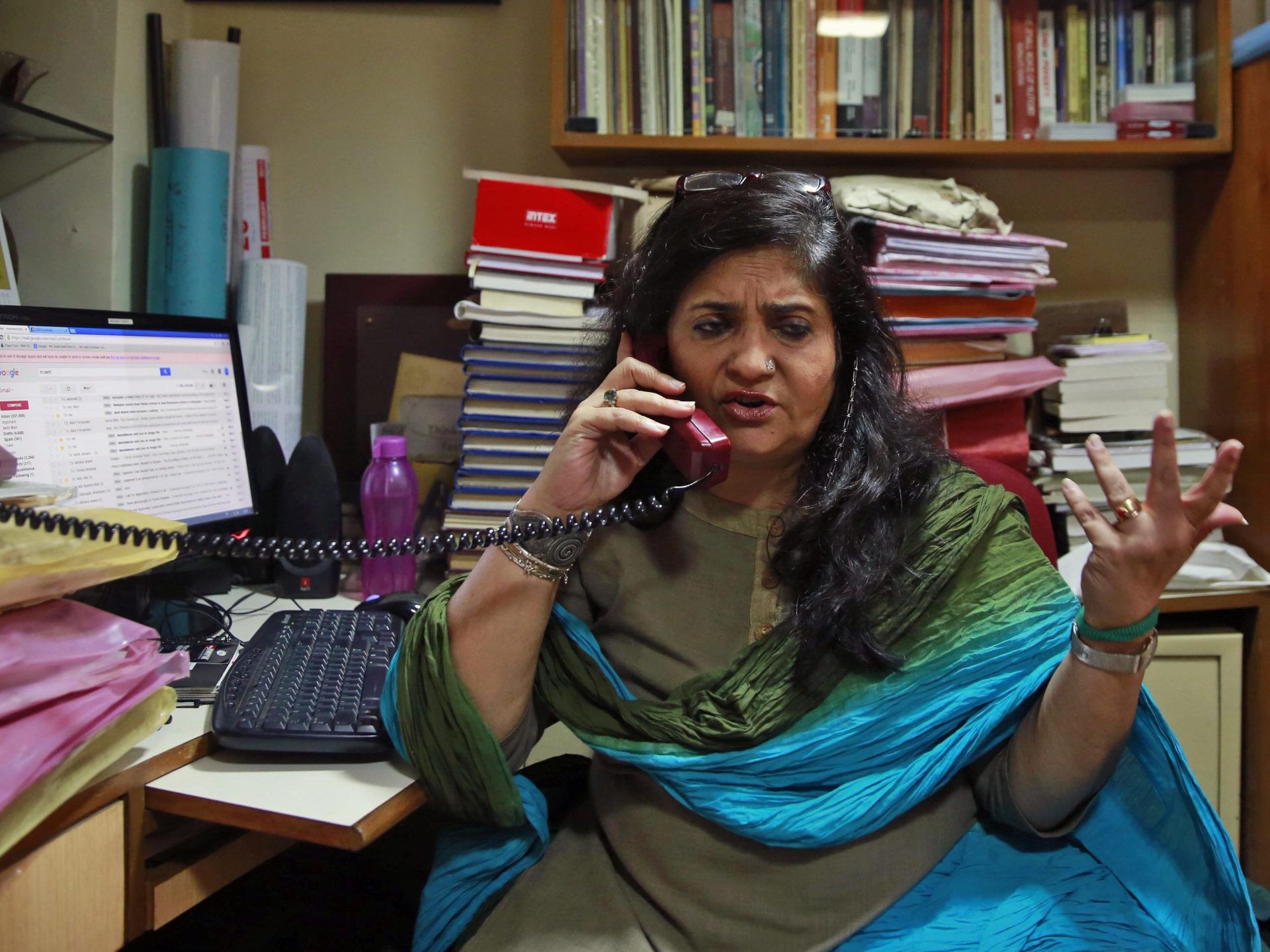
The prominent Modi critic was arrested by Gujarat police in June for allegedly coaching witnesses and forging documents in cases related to the riots.
India’s Supreme Court has ordered the release on interim bail of a prominent activist and critic of Prime Minister Narendra Modi, more than two months after she was arrested on suspicion of faking documents about religious riots in 2002.
Teesta Setalvad was arrested from her residence in Mumbai on June 25 by police from Modi’s home state of Gujarat.
“Considering the facts, including that she is a lady and submissions of other accused be considered purely on their merits, this court grants her interim bail,” Chief Justice Uday Umesh Lalit said in his order on Friday.
The interim bail granted by the Supreme Court will stand until a state court decides on Setalvad’s bail plea. The court asked Setalvad to surrender her passport and cooperate with the police during the investigation.
Setalvad is accused of tutoring witnesses, forging documents and fabricating evidence in cases pertaining to the riots in Gujarat when Modi was state chief minister.
In court, Setalvad’s lawyer said all cases against her were malicious and false. She was not formally charged by the police.
Opposition politicians and rights activists had criticised Setalvad’s arrest, saying it was a political vendetta by Modi’s government.
Modi was accused of failing to stop the rioting when nearly 2,000 people – most of them Muslims – died under his watch.
He denied the accusations and was exonerated in a Supreme Court inquiry in 2012. That decision has effectively closed any further legal challenges to Modi.
Setalvad rose to prominence during her long legal campaign for Zakia Jafri, whose husband, Ehsan Jafri, was burned alive by a Hindu mob in 2002. Ehsan Jafri, a former member of parliament, was a prominent Muslim politician and had offered refuge to fleeing Muslims during the riots.
Jafri, now aged 85, has sought to establish that the riots were the result of a high-level conspiracy involving Modi. It was a petition by Jafri challenging a report by a special investigation team that cleared Modi of any complicity that was dismissed by the Supreme Court in June.
Over the years, Setalvad has been investigated by various government agencies for allegedly misappropriating funds meant for riot victims. She has denied any wrongdoing and that case is pending in court.
The shadow of the Gujarat riots continues to hang over India after nearly 20 years.
Earlier this month, 11 Hindu men who had been jailed for life for gang-raping Bilkis Bano, a Muslim woman, during the riots were released on suspended sentences, prompting protests by rights activists.
Bano, who is now in her 40s, was pregnant when she was brutally raped. Seven members of the woman’s family, including her three-year-old daughter, were also killed in the violence.
Officials in Gujarat, where Modi’s Bharatiya Janata Party (BJP) holds power, have said that the men’s application for release was granted because they had completed over 14 years in jail.
After the men’s release was met with outrage, the Supreme Court last week directed the Gujarat government to look into the issue.







